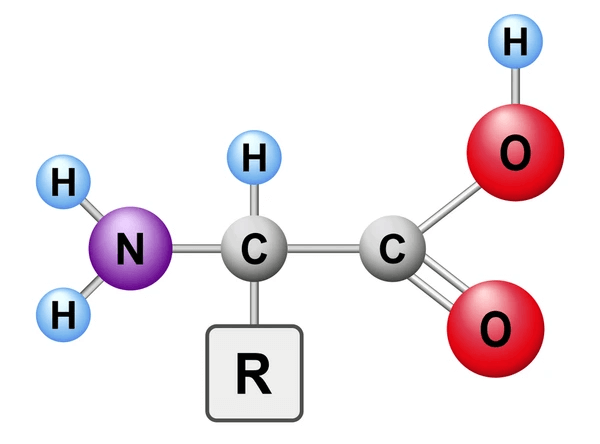- +033 2572 7171
- info@dhanvantary.com

4.5 Rating | 4500 Review

4.5 Rating | 4500 Review
Amino acids serve as the fundamental components of proteins and play a crucial role in the human body. Proteins are composed of numerous smaller units known as amino acids, which are linked together through peptide bonds. There are a total of 20 distinct amino acids, of which nine are classified as essential and eleven as non-essential. The body requires all 20 amino acids in varying amounts to maintain optimal health.

Amino acids can be categorized into two types:
Amino acids serve as the fundamental components of proteins. They provide a source of energy for the body. Additionally, they are involved in the synthesis of neurotransmitters. Amino acids contribute to the regulation of metabolism and help maintain healthy blood pressure levels, which is beneficial for cardiovascular health.
Eggs and dairy products are rich in amino acids. For instance, a cup of yogurt contains 14 grams of protein, while an egg provides 6 grams. Mozzarella cheese offers 9 grams of protein, and low-fat Swiss cheese contains 8 grams. Red meat is among the foods highest in protein content.
Quinoa and soy products are excellent sources of essential amino acids. One cup of quinoa provides 8 grams of protein, whereas a cup of soybeans contains 29 grams. Beans and nuts also contribute a significant amount of amino acids. Furthermore, tofu and soy milk are notable sources of these vital nutrients.
A lack of amino acids in the diet can result in serious health complications known as kwashiorkor, a condition associated with malnutrition. The symptoms of kwashiorkor may include:
A diet low in protein can lead to an amino acid deficiency within the body. This deficiency may increase susceptibility to colds and other health problems. Furthermore, it can result in a prolonged healing process for minor injuries or cuts.
The excessive intake of protein or amino acids can result in various health issues, including:
